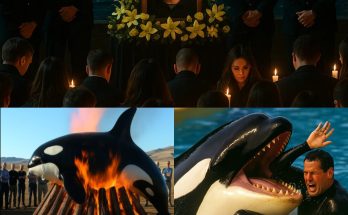History often remembers great leaders, generals, or kings. Yet sometimes, it is the quiet and unassuming individuals—those who never seek recognition—who make the most profound difference.
Sir Nicholas Winton was one such man. Known as the “British Schindler,” he saved 669 children from Nazi-occupied Czechoslovakia, sparing them from the horrors of the Holocaust.
What makes his story even more extraordinary is his humility. For decades, almost no one outside his family knew of his heroic actions.
An Ordinary Beginning
Nicholas George Winton was born on May 19, 1909, in Hampstead, London, to Jewish parents of German descent. His family had converted to Christianity, and he grew up in relative comfort. He was well-educated, multilingual, and trained as a stockbroker. On the surface, his life appeared destined for a typical middle-class path in Britain.
But fate, and his own compassion, would change everything.
A Chance That Changed Lives
In December 1938, Winton had planned a skiing holiday in Switzerland. At the last moment, his friend Martin Blake, who worked with the British Committee for Refugees from Czechoslovakia, urged him to visit Prague instead. The country was in turmoil: after Hitler annexed the Sudetenland, thousands of Jewish families and political dissidents had fled to makeshift refugee camps.
When Winton arrived in Prague, he was confronted with scenes of desperation—families living in tents in the freezing winter, fearful of what would happen as Nazi influence spread. Most international organizations were focused on relocating adults, but Winton saw another urgent need: the children.
Creating a Rescue Mission
Back in Britain, a program called the Kindertransport had already begun, bringing nearly 10,000 Jewish children from Germany and Austria to safety. But there was no such plan in place for Czechoslovakia. Winton believed the British government could be persuaded to extend the scheme.
With the help of Doreen Warriner and other volunteers, he began organizing a rescue operation for Czech children. Working out of a small hotel room in Prague, Winton set up what was essentially an improvised office. There, parents lined up in desperation, pleading for their children’s names to be added to his list.
The process was daunting. Each child needed a visa, a guarantee of sponsorship in Britain, and funds to cover travel costs. Winton, his mother, and a small group of volunteers worked tirelessly to secure the necessary paperwork, raise money, and arrange transport.
The Kindertransport From Prague
From March to August 1939, train after train left Prague, carrying children across Germany to the Hook of Holland, where ferries brought them to Harwich, England. There, families or foster homes were waiting to take them in.
In total, 669 children were rescued through Winton’s initiative. They were given a chance at life, spared the camps, starvation, and extermination that awaited so many others.
But tragedy shadowed the effort. A final train, scheduled to carry another 250 children on September 1, 1939, never departed. That very day, Germany invaded Poland, and war broke out. The borders were closed, and the children scheduled to leave vanished into history. Winton never forgot them.
Decades of Silence
What makes Winton’s story remarkable is not just his heroism but his silence about it. After the war, he returned to his life as a stockbroker, married, and raised a family. He rarely spoke of what he had done, not even to his wife.
It wasn’t until 1988—nearly 50 years later—that his story came to light. His wife, Grete, discovered a scrapbook in their attic filled with documents: lists of the children, photographs, and letters from parents. She passed it to a Holocaust historian, and soon Winton’s deeds were revealed to the world.
A Nation Discovers Its Hero
In 1988, the BBC invited Winton to appear on the program That’s Life!. Sitting in the audience with him were dozens of adults who, as children, had been saved by his actions. The emotional moment—when the host asked, “Is there anyone in the audience who owes their life to Nicholas Winton?” and nearly the entire room stood—remains one of the most moving television broadcasts in British history.
Winton, visibly overwhelmed, finally understood the magnitude of what he had done.
Recognition and Legacy
Though Winton had long dismissed his efforts as “just being in the right place at the right time,” the world did not. He was knighted by Queen Elizabeth II in 2003 for “services to humanity.” He was also awarded the Order of the White Lion, the Czech Republic’s highest honor, and given the Freedom of the Cities of London and Prague.
Many of the “Winton Children,” as they became known, went on to live successful lives in Britain and beyond. Some became doctors, teachers, and leaders in their communities. Today, their children and grandchildren carry on the legacy of the lives Winton saved.
His Final Years
Sir Nicholas Winton lived a long life, passing away in July 2015 at the age of 106. Until the very end, he remained humble about his actions, insisting that he had simply done what anyone else would have done in his position. But history tells us otherwise—few had the courage, initiative, and determination to act when so many others turned away.
Why His Story Matters
Winton’s story is more than a historical anecdote. It is a lesson in the power of individual action. At a time when hatred and fear paralyzed nations, one man refused to stand still. He saw injustice, and instead of being overwhelmed by the scale of the problem, he focused on what he could do. For 669 children, that made all the difference.
In a world that often feels dark and uncertain, Winton’s story continues to shine as a reminder that courage is not the absence of fear—it is the choice to act despite it. His legacy lives not only in the lives he saved but in the countless people inspired by his example.
A Legacy of Compassion
When asked about his actions, Winton famously said: “Why are you making such a big deal out of it? I just helped a little; I was in the right place at the right time.”
But history knows better. What Nicholas Winton did was not small, nor was it chance. It was a deliberate act of compassion, persistence, and bravery. He proved that one person can stand against the tide of hatred and change the world—not for everyone, but for hundreds of children who would otherwise have been lost.
And for that, Sir Nicholas Winton will forever be remembered as one of the quiet heroes of the 20th century.


